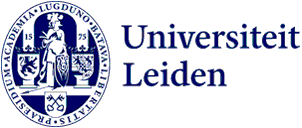
Experiment: Leiden University student writes thesis with just AI tools for supervision
As an experiment, student Alicia Cai relied solely on AI tools such as ChatGPT and Claude for supervision while writing her thesis. It was only after she had finished writing it that Professor Bas Haring, who devised the experiment, assessed her thesis. What lessons were learned?
Usually, the thesis part of any degree involves slogging away independently and regularly meeting with your lecturer to discuss progress. Instead, one student decided to rely solely on AI tools during this process. Leiden’s Professor Bas Haring launched this experiment after discovering how effectively Alicia Cai, a Media Technology student, uses AI. ‘After just one week, ChatGPT had helped her come up with ten brilliant thesis ideas. And so I wondered: what exactly is my added value in the graduation process? A supervisor’s task is to help students stay on track, but AI tools are always available to help with that too. On the other hand, we are also curious about the potential drawbacks.’
The first of its kind
Alicia was eager to receive this alternative form of thesis supervision. The experiment could only begin following approval from Leiden University’s Board of Examiners (see their response at the end of this article). As far as Professor Haring and Alicia understood, this experiment was the first of its kind in the Netherlands. Alicia explains that the thesis comprises two parts. First, with help from AI, she developed a digital programme that uses photos of someone’s fingernails to detect whether they bite their nails. She deliberately chose a new area of research that would not yet be widely accessible online.
Aim of the thesis
It is a niche subject, Alicia notes. ‘The primary aim was actually not to achieve groundbreaking innovation in within the area of nail-biting detection, but to serve as a practical case study for evaluating the effectiveness of AI as a thesis supervisor.’ The subject of Alicia’s thesis had to be sufficiently complex in order to assess how well AI tools can make technical suggestions. In the second part of her thesis, Alicia provides a detailed reflection on her digital thesis supervisor, covering aspects such as content, practicality and emotion.
Benefits
In her conclusion, the student identifies several significant benefits to using AI for this purpose: ‘AI excelled in terms of technical supervision: it provided codes, helped detect errors and offered conceptual explanations. That enabled me to develop detection models for photos of nail biting – even with no prior knowledge of deep learning methods.’ She also praises AI for its 24/7 availability and language support, which ‘significantly improved’ her academic English.
Drawbacks
However, there were also some drawbacks to using AI in this way. From an emotional point of view, she recalls sometimes feeling ‘isolated’. ‘I missed the motivating pressure of having a human supervisor and the accountability that comes with that. I also missed the in-depth expertise of an experienced professor who would have provided theoretical frameworks for methodology and guided the direction that the research would take. AI also didn’t really push me to think critically for myself.’ On top of that, Alicia says that AI cannot introduce students to the research community in a personal way.
A professor’s perspective
Professor Haring hails the experiment a success. He believes that, on the one hand, Alicia’s thesis clearly shows how ‘caution is recommended’ when using AI tools for supervision tasks. On the other hand, the experiment had led him to conclude that some aspects of student supervision can be automated. Professor Haring is not at all concerned that AI tools wrote Alicia’s entire thesis. ‘I trust her and know she was able to write the thesis better herself. Moreover, it would have been too great a risk for her because she knew that the thesis was going to be scrutinised.’ As well as Professor Haring, a second reader will assess the thesis.
Update (2 September): The thesis has been awarded a grade of 8.5.
Fundamental questions
The experiment intentionally raises fundamental questions about student supervision. Professor Haring calls for openness in this debate and believes that experiments such as this can help answer these core questions. ‘Some supervision activities could perhaps be performed by AI, while the social and emotional support should be left to humans,’ he suggests. There was one social component of Alicia’s thesis process, and for good reason. Many people find thesis writing a solitary experience, and Professor Haring considers social contact extremely important. He therefore treated Alicia to lunch with a fellow student or a lecturer once per week.
Response from the Board of Examiners
The Board of Examiners was informed of this experiment in advance, says chair Suzan Verberne, Professor of Natural Language Processing: ‘The Board is responsible for assessment quality, which is why this thesis had to be assessed against the same criteria as all other master’s theses. Fortunately, the assessment criteria are clear and the second assessor is also involved in this, of course.’
Like Professor Haring, Professor Verberne believes that this supervision method cannot be applied in all situations: ‘It requires a high achieving, very independent student who is able to think critically. After all, they cannot receive feedback from their supervisor along the way. ChatGPT almost always strikes an affirming, positive tone, unless explicitly instructed otherwise in the prompt.’
*The banner image was generated by AI (Gemini 2.5) using the prompt: Female Leiden University student writes thesis with just AI tools for supervision.
